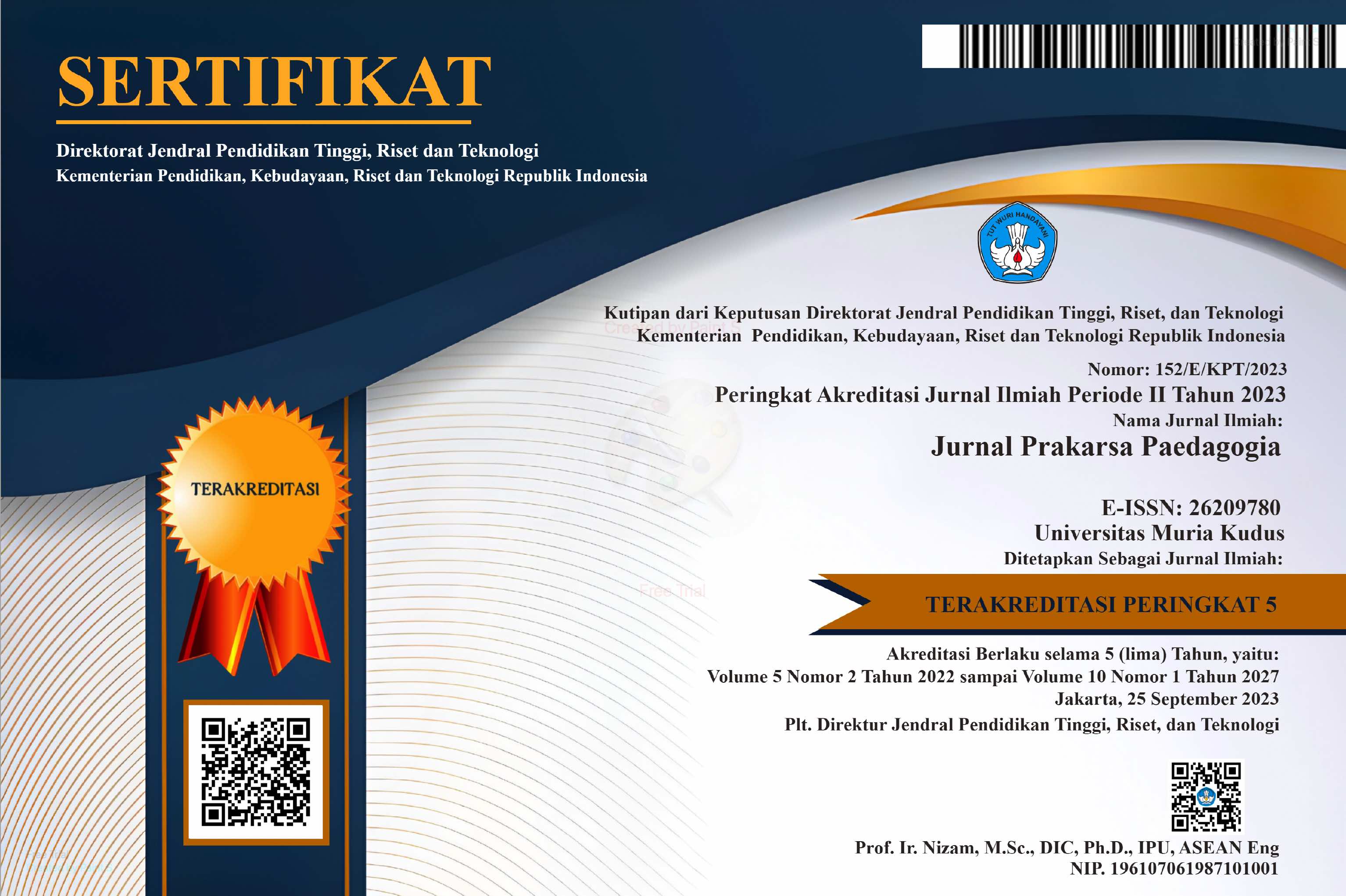Eksplorasi Dimensi-Dimensi Successful Aging
Abstract
Keywords
Full Text:
751-761 (Bahasa Indonesia)References
Amaral, F.M., Hari, C., & Soetjiningsih. (2019). Successful Aging of Elderly People in Low Economic Status Who are Still Working and it is Related to DailyActivities and Hardiness. Journal Psikodimensia 18:28-36 DOI10.24167/psidim.v18i1.1714 Badan Pusat Statistik (BPS). (2022). Persentase Penduduk Lansia Indonesia 2022. Dipetik, 12 Novenber 2023. Cyrillus, G. L. (2008) Hubungan kepribadian hardiness dan kesejahteraan psikologis pada lansia. Skripsi thesis, Sanata Dharma University. Iwamasa, G. Y. & Iwasaki, M. (2011). A New Multidimensional Model of Successful Aging: Perceptions of Japanese American Older Adults. Journal Cross Cultural Gerontology 26:261–278 DOI 10.1007/s10823-011- 9147-9 Khairat, M. (2017). successful aging: Anak yang Berhasil dan Berbakti. Jurnal Psikologi Islam Al-Qalb. Volume Nomor Hal. Marliani, Rosleny. (2015). Psikologi Perkembangan. Bandung: Pustaka Setia Maslow, A.H. (1984) Motivation and Personality (Teori Motivasi dengan Ancangan Hirarki Kebutuhan manusia). Penerjemah Nurul Iman. Jakarta: PT Gramedia Laras, P. B. (2021). Modul Perkuliahan Psikologi Perkembangan Dewasa Lansia. Yogyakarta: Universitas Mercu Buana Santrock, J. W. (2002). Life-Span Development: Perkembangan Masa Hidup. Edisi Kelima. Jilid Kedua. Terjemahan. Jakarta: Penerbit Erlangga Stevens-Long, J. (1979). Adult Life Developmental Processes. Second Edition. Mayfield Publishing Company: Los Angeles Suardiman, S.P. (2011). Psikologi Usia Lanjut. Gadjah Mada University Press: Yogyakarta Sugiyono. (2012). Memahami Penelitian Kualitatif. Bandung: Alfabeta Wahyuningsih, S. (2013). Metode Penelitian Studi Kasus Konsep, teori Pendekatan Psikologi Komunikasi, dan Contoh Penelitiannya. Madura: UTM Press Zohar, D. & Marshall, I. (2007). Kecerdasan Spritual. Bandung: Mizan.
DOI: https://doi.org/10.24176/jpp.v6i2.11478
Refbacks
- There are currently no refbacks.
Copyright (c) 2023 Jurnal Prakarsa Paedagogia

This work is licensed under a Creative Commons Attribution-NonCommercial-ShareAlike 4.0 International License.
Visitors of the Paedagogia Prakarsa Journal Status
Country of Origin of Visitors:
Jurnal Prakarsa Paedagogia dari Fakultas Keguruan dan Ilmu Pendidikan Universitas Muria Kudus is licensed under a Creative Commons Attribution 4.0 International License.
Dedicated to:







